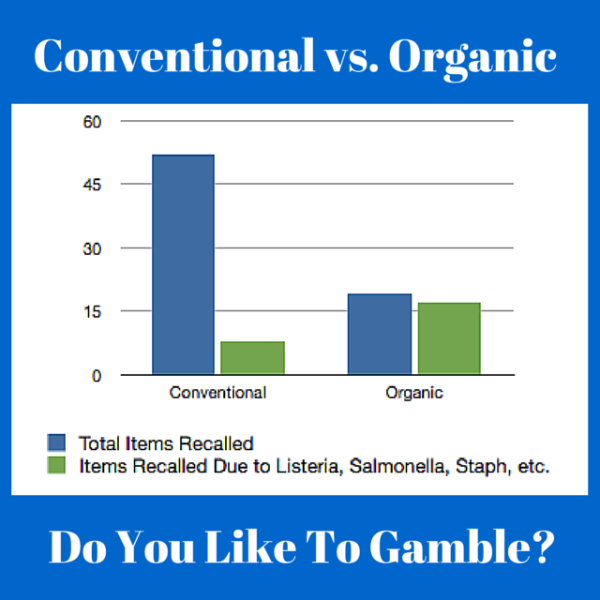Organic food is all the rage right now, and the practices used in organic growing are worthy of our attention. All farmers need to be supported and encouraged no matter what growing methods they use on their farm. However, consumers have been told by groups like Only Organic that foods grown under USDA Organic guidelines are healthier, tastier, and safer.
Are ‘organic’ foods healthier? No.
CNN.com posted an article by Aaron Carroll, a professor of pediatrics. He did a great breakdown of several large studies conducted. The bottom line was that, “there’s a lack of evidence that organic foods are significantly more nutritious than conventionally grown food.” There are minor differences between both growing methods, some in favor of organic, some in favor of conventional, but all differences were small. BOTH are healthy and humans should be eating far more vegetables than are currently consumed.
Are ‘organic’ foods tastier?
Taste is a matter of personal preference and the “tastiness” of any food is dependent on its quality, ripeness, and many other factors that are independent of “organic” or “conventional” growing practices. Clinical studies find there is no taste difference between the two production methods. Penn & Teller do a funny taste test at a farmer’s market HERE, and a Dutch show passes off McDonald’s as ‘organic’ at an organic food convention HERE.
Are ‘organic’ foods safer? No.
Many claims are made that ‘organic’ food is safer because it is produced with little or no pesticides. This is simply incorrect. Organic farming can use lots of different pesticides – just not synthetic products. Synthetic options are often safer, and require less applications compared to their ‘natural’ counterparts. Organic produce (when anyone bothers to test it), shows residue from both synthetic and ‘natural’ pesticides in up to 43% of samples tested. Melinda Moyer’s article, “Organic Shmorganic“, points out that even the Environmental Working Group (author of the ‘Dirty Dozen‘ list) throws in a disclaimer to their findings:
“What all this means for parents is that we should stop worrying so much about whether the apples we buy are organic or conventional—we should just start giving our kids more apples. (And, sure, wash them when you can.) The Environmental Working Group agrees: In the first sentence of the executive summary of its 2013 Shoppers Guide to Produce, the organization points out that “the health benefits of a diet rich in fruits and vegetables outweigh the risks of pesticide exposure.”
Again, we must recognize that while conventionally grown produce may have a slightly higher level of pesticide residue on them, they are still well within safety standards set out by the FDA. We just need to eat more of them, not fear them for their production method.
But wait, are organic foods safer when it comes to bacterial contamination?
The FDA puts out a list of recalls (here) that can be checked against your pantry. They give detailed information about why an item is recalled and how to tell if you have that item in your home. Here’s the breakdown of the products on the recall list for the past 60 days. (Jan 26, 2015 to March 26, 2015)
There were 52 conventionally produced items recalled. Of those, the vast majority were recalled due to possible allergens in the product. Eight products were recalled due to illness-causing organisms like Listeria and Salmonella. This comes out to 15% of conventional products recalled due to bacterial contamination.
There were 19 organically produced products recalled. Of those, 17 were due to organisms like Listeria and Salmonella. The percentage of recalls of organic products due to bacterial contamination? 89%
Of further interest is the fact that organic food sales account for only 4% of the total food market in the US. Four percent of the market made up about 27% of the recalls. If you want to rule out the recalls due to allergens, that figure soars to 68%. Think about that. Four percent of the food in this country caused 68% of the salmonella, listeria, and staph related recalls in the last 60 days. This should give us pause as we consider the safety of this sector of our food supply in the US.
If you buy only organic food, ask yourself:
But more importantly, have you consumed your daily dose of fruits and vegetables,
regardless of the growing method used to produce them?



